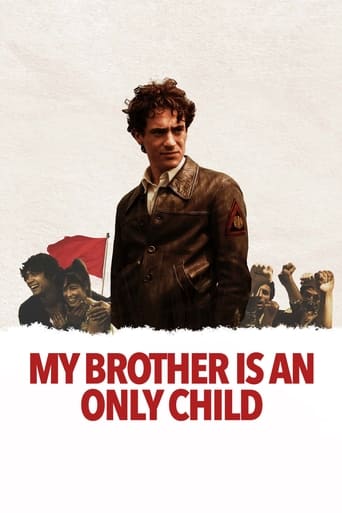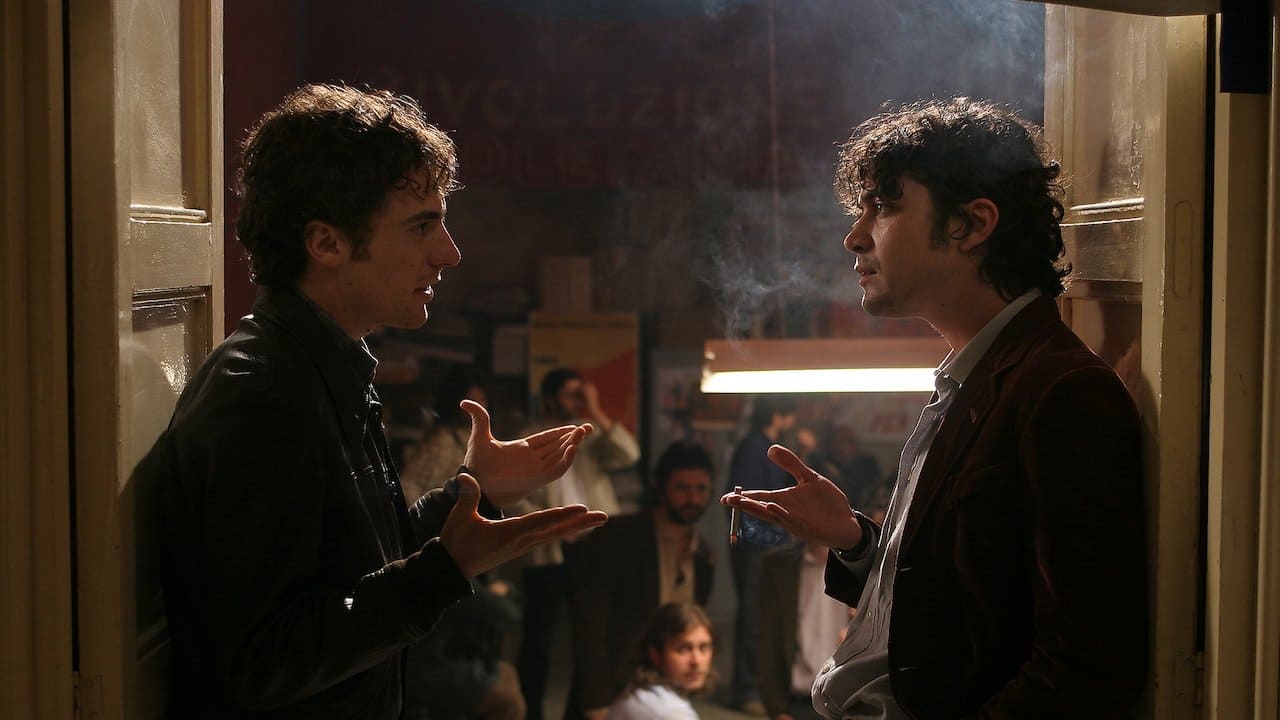johno-21
I saw this last month at the Palm Springs International Film Festival. This is a good offering from Italy and director/writer Daniele Luchetti who co-wrote the screenplay with Sandro Petraglia and Stefano Rulli based on the semi-autobiographical novel Il Fasciocmunista by Antonio Pennacchi. The story takes us from 1962 to around 1977 and as it begins we follow Accio Benano (Vittorrio Emanuele Popizo) who is a scrappy little mischief-maker who loves to fight and ends up in a seminary to study for the priesthood. This falls through and he returns home to his mother and father and older sister and brother. They live in a small town that was created by WWII era fascist dictator Benito Mussolini. The family home and most others in town are falling apart and the community awaits long promised new government housing from the current series of governments but the housing that is already constructed sits unoccupied. The older Accio (Elio Germano) has grown into an even more mischievous and rebellious young man and through his friendship with Mario (Luca Zingaretti), a Mussalini sympathizer who longs for the old days he joins the local Fascist party. This is in direct contrast to his family who are communist sympathizers and Accio older, charismatic and handsome brother Manrico (Riccardo Scamarcio) has joined the local communist party and is involved in organizing workers at the factory where he works. Accio has an eye for Manrico's girlfriend Francesca (Diane Fleri) and Mario's wife Bella (Anna Bonaiuto) has a Mrs. Robinson kind of attraction to Accio. This is a drama with plenty of smart comedy. An excellent cast and director Luchetti get the most out of them. It's a simple story that never bogs down and keeps moving with good dialog interesting situations. I would give this an 8.0 out of 10 and recommend it.
Chris Knipp
Luchetti's film ('Il mio fratello è figlio unico') goes from the Sixties into the Seventies in Italy following two brothers from a communist working-class family. Accio Benano, the rebellious younger one, who drops out of seminary very quickly, gives in to the constant indoctrination of a much older bus driver pal named Mario (Luca Zingaretti) and joins the fascist party. Then he falls in love with Francesca (Diane Fleri), the girlfriend (the first of a series) of his Lothario older brother Manrico (blue-eyed dreamboat Riccardo Scamarcio). Manrico becomes a leftist leader in '68 and moves on to terrorist activities in the Seventies. Accio's black-shirt cohorts cause their share of bother too, of course, but they are depicted as both inept and betraying Accio's confidence. Eventually the latter realizes he's a leftist too at heart. (He only adopted fascism because he wanted to be contrary.) This change in Accio comes almost in time to save Manrico from big trouble.It took me a while to adjust to the shift in actors when Accio goes from early to late teens. No doubt Elio Germano was an inevitable choice for the older Accio because of his sweet, ironic presence: he's a lovely actor. But the younger actor, Vittorio Emanuele Propizio, and the incidents Accio's involved in early on, project a spirit of fun and craziness that I missed thereafter. In fact, the promise of the early sequences gets dissipated in what becomes an increasingly plodding (and overly telescoped) series of events as Accio's and Manrico's politics, love lives, and family involvements criss-cross over the years.Reports from those who've read Antonio Pennacchi's amusingly titled novel 'Il fasciocommunista' say the movie lightens things up, but Sandro Petraglia and Stefano Rulli, who collaborated on the screen adaptation, seem to have gotten bogged down and too literally followed the story after those light-hearted and promising beginnings. Mind you, Petraglia and Rulli are no slouches: they also scripted the recent 'Criminal Romance' (veteran actor Michele Placido's 2005 directorial debut, which also features Scamarcio) as well as the highly successful theatrically released TV miniseries 'The Best of Youth,' whose decade-sweeping plot this film's somewhat echoes.A memorable set piece shows Manrico introducing a '68 reworking of Beethovan's 'Ode to Joy' with revolutionary lyrics. During the performance Mario's fascist hooligans move in, and their targeting his own brother leads to Accio's final break with the right.The family's base is Latina, a town created by Mussolini south of Rome, which makes an ever-present reminder of heavy Italian legacies. Mario represents the element who refuse to erase or forget the nation's fascist past. He argues (among other things) that there's a worthwhile legacy of architecture. Indeed fascist architecture does have a certain kitsch charm one ought not reject too easily; and an inability to come to terms with the fascist past is surely one of the main reasons for Italy's muddled self-image. This story is a stab at dealing with that psychological issue in a healthy way.'My Brother Is an Only Child,' which was rejected by the Cannes jury for Official Entry status, lacks the fluidity of Gabriele Muccino's 'Io come te nessuno mai' (which, though very different, comes to mind for its blending of coming of age, family conflict, and politics) but it has a kind of vernacular vigor. It's true, Italian cinema continues to go through a largely lackluster period, and Italian film-goers appear to have been bitterly disappointed with Luchetti's latest. That's a bit of a shame, because there is a lot of charm and humanity here, and for anyone interested in Italy and its modern history, this should be required viewing.Seen during a limited run in Paris, October 17, 2007.
bethels04
Saw this film last night with my same age friend (we do this often). As we are in our 60's and arrived in Rome during the period mentioned in the film. We were impressed with the verity of what we saw. While Italy remains fairly split between left and right, in those days it was far more brutal and school and university sit-ins were the name of the day. Everyone seemed to have fixed ideas which they discussed violently. We laughed at the communist 'let everyone state their views' meeting. These days condominium meetings are exactly like that. 2 Italians meet and you get two political parties! The film may not be the best one ever but even the scratchy quality of the film reminded us of that era. People our age (the audience had no-one under 50 last night), commented on how much they enjoyed it and how much it brought back memories. Perhaps you have to have lived the period to truly enjoy this film.
l_enterprise
Simply put, a very good movie. As somebody who lived through part of those years, I really appreciated the way it managed to recreate their social and political 'atmosphere'. Yes, it is not the first flick to deal with those topics, but hey, how many movies about WW2 have we seen so far? Was Flags of our Fathers less good for this reason? I particularly liked Accio's description of personal relationships between the brothers, as well as the intriguing political evolution. I thinks that Scamarcio's presence could also take a younger audience to this movie, something which would be very good as some stories are just worth remembering (I can't stand the "let's forget about it and move on towards modernity" approach; awfully dangerous for a civilized society). Back to the cinema factor, all actors fit well in their roles, although the Accio's sister was kind of lame at times. Zingaretti's performance as a hardcore fascist, on the other hand, was made even more intriguing by his close association with the ever-different character of Commissario Montalbano in the popular TV transpositions of Camilleri's novels (which by the way I strongly recommend to anyone interested in Italian written fiction).


 AD
AD



